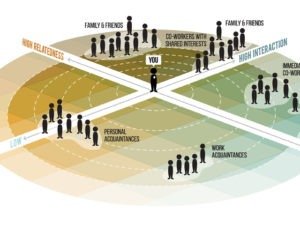Peter Pangalo is the Co-Founder of Pangalo Group, a global Learning & Organization Development Service passionate about helping companies achieve peak performance. As an inclusive, agile & innovative People Operations Leader, he thrives when inspiring others to bring their best, authentic selves to work by elevating individual & team superpowers. Here, he discusses the impact inclusive learning can make.
Tell us about Pangalo Group
Pangalo Group 2.0 is a learning and development company that specializes in creating inclusive, engaging, and effective learning experiences. We use a variety of learning modalities, including podcasts, blogging, coaching circles, and online courses, to help people learn and grow.
Why did you start Pangalo Group?
I was inspired to start Pangalo Group because I believe that everyone should have the opportunity to learn and grow, regardless of their background, experience, or job title. I also believe that learning should be engaging and effective. Too often, traditional L&D programs are boring and irrelevant to the needs of learners.
Tell us about your approach.
- We use a variety of digital-first modalities – podcasts, blogging, coaching circles, and more to help people learn and grow.
- We create inclusive learning programs that are open to everyone regardless of their background, experience or job title – this is essential to creating a community of learners
- We identify internal experts who have the knowledge, passion for the subject area, a modicum of communication skills, and the humility and facilitation skills required to lead sessions and teach others. We aren’t “training the trainer” or directly facilitating the learning which is all conducted by peers.
How did you develop your unique approach?
When I was at tech start up, a big priority was helping 100,000 customers mobile optimize their websites. At the time, our path was through elastic search, but no one knew how to develop and design with it and so we created a solution called Learning Labs to help us unlock and tap into the internal knowledge we already had to upskill others. In our case, we had 3 people who were brilliant at different parts of elastic search and so they led the first Learning Labs which is at the heart of the learning program design approach we bring to organizations.
What does inclusive learning mean to you?
At the core people want to lean in, learn, and understand the world around them which is why we opened the program to anyone even those who don’t write code so as to help the business better understand the needs and thereby enable others to contribute. When we started the program in 2014 we had 12 people attending and by the time I left we had 375 people.
And for non-developers, this can be hard at first – I remember our CHRO initially remarking “is this in English?” but by the end she was coming up with ideas including to expand the program.
Being inclusive does not mean “a big hug”. It means including everyone who wishes to participate and creating an environment where everyone feels safe and supported to learn and grow. Tech is a great leveler and reference point here – tech doesn’t see gender, sexuality, religious affiliation, etc.
Being inclusive is all about inspiring, not requiring individuals to participate. For example, at one of my prior company’s, there was a need for a People Management program.
The organization was promoting talented individual contributors into management roles – the reward and recognition is naturally tantalizing for the individual, but we needed to do a better job of supporting them in their transition out of an individual contributor role into their people management role.
So we utilized the Learning Labs method – an 8 week program for early career managers that was not required with roadblocks removed to make it easy to participate. The target audience is 18 months or less of people management experience which was a shift for the organization – it’s not about how long you have been in the workforce but how long you have been a people manager.
We also made it inclusive by encouraging managers who maybe had been in seats for longer than 18 months but wanted to sharpen their skills. We did 20 managers per cohort and 2 cohorts per quarter. By the time I left, we had waiting lists and, best of all, had helped solidify these rockstar SME presenters, ultimately unlocking institutional knowledge and leveraging internal superpowers.
What changes or evolutions have you made to your approach?
One thing we learned was the need for succession planning. It takes a lot to teach others and no one should be expected to do this indefinitely – they may leave the company or get burnt out. So we’ve been weaving that into our program strategy as well.
How do you measure success?
We look at participation (+ waiting lists), engagement scores, retention, and other specifically enumerated business objectives.
What do you think about self-guided learning?
I think it’s imperative for people who want to learn for learning’s sake. And for some kind of learning – like how to repair dry wall – it can be great. But I’ve yet to see it really work in business. You need human intervention, peer-to-peer engagement, and coaching. Part of the challenge is carving out the time for self-guided learning as well as staying focused. It’s so easy to be distracted with self-guided learning in a digital setting. I love learning but I find it tough to switch everything else off. A friend of mine gave me a Masterclass subscription and there was a course from someone I revere but I tuned out halfway through.


 6 min
6 min




